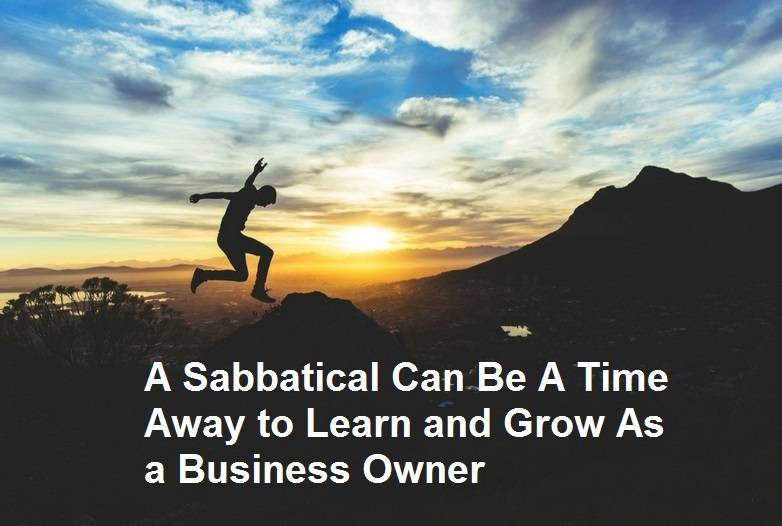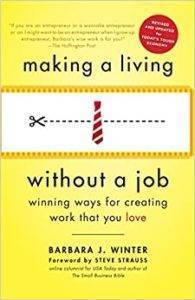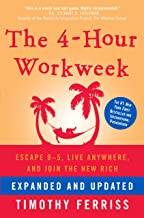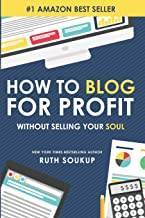Have you been dragging lately?
Are you exhausted with way too much to do?
Is it becoming increasingly harder for you to find time for those special projects?
Then my friend, it may be time for you to take a sabbatical.
What is a Sabbatical?
If you have been self-employed for any length of time, then you know that you do not get paid vacation days, paid holidays or any of those former employee benefits. To some members of the self-employment crowd, this may seem downright scary as it would leave a significant gap in income.
Basically, a sabbatical refers to scheduled time off from work—regardless of whether or not you are self-employed or work for a company. It refers to the Old Testament’s practice of taking schedule time off or putting aside a particular day or period of time to rejuvenate and observe.
The practice itself is referred to in Exodus 20 (and other passages as well) and was introduced to Moses as he introduced the Ten Commandments to the Jews. The commandment for the Sabbath’s observation is actually the Fourth of the Ten Commandments and reads as follows:
“Remember the Sabbath day, to keep it holy. Six days you shall labor and do all your work, but the seventh day is the Sabbath of the Lord your God. In it you shall do no work: you, nor your son, nor your daughter, nor your male servant, nor your female servant, nor your cattle, nor your stranger who is within your gates. For in six days the Lord made the heavens and the earth, the sea, and all that is in them, and rested the seventh day. Therefore the Lord blessed the Sabbath day and hallowed it.” (Exodus 20:8- 11, King James Version)
How is a Sabbatical Different From a Vacation?
A vacation is time off—usually scheduled—to go somewhere and enjoy relaxing and resting. During a vacation, the time should be spent with family and friends having fun and creating memories. Most of these memories will be posted on Facebook or framed for future generations to enjoy.
A sabbatical is also time off, but more for enhancing, learning or pursuing career or business objectives. This could be time off for you to take a course, write a lengthy report or publish a book. It could also be time to potentially explore ways to advance in your current career or even change careers.
Another huge difference is that sabbaticals are unpaid. Vacations are paid, and the time has been accrued by the employee. Obviously, for us who are self-employed, neither vacations nor sabbaticals are paid.
However, if you are working for a company, make sure that you have the length of time and terms of your sabbatical in writing. All of the parties involved need to understand what is expected—especially when you are expected to return to work. This is especially true when and if your sabbatical time is known to be for employer agreed-upon objectives.
In 2011, there was a lawsuit in which the employee sued his company, because he argued that what he used for eight weeks of sabbatical to de-stress and look for another job was really vacation time that should have been paid to him once his employment ended. You can certainly read Paton v. Advanced Micro Devices, Inc. to see how the California Court of Appeals later overthrew the initial motion and adapted a four-point test for employees and employers to understand the difference between sabbatical leave and vacation leave.
Now if you are only going to be on vacation for a week or two and want to use your time to work on your dreams—I did when I was still in the Brick & Mortar setting—fine. In my case, the time period and my own personal creative pursuits did not create any expectations on behalf of my then current employer.
Unfortunately, in the United States many employees do use their vacation time to work instead of relaxing—much to the dismay of our European friends. Not good!
What Are Some of the Things That Can Be Done on a Sabbatical?
You could certainly use your sabbatical time to do a number of things. If you are employed by a company you can:
- travel if it is related to archeological finds or history and this is part of your job
- write and publish in trade journals
- take a course related to your job
- construct a business plan for company’s growth
- write a 5 or 10 year career path to show your employer
- rejuvenate your creativity if it is related to your job (advertising, graphics or more creative careers)
If you are self-employed, you could use the time to leverage your business by creating passive income, such as:
- eBooks
- eCourses
- videos
- client packages
- adding a forum to your blog
- monetizing your blog
- online workshops
- offline workshops
You could also use the time for taking a course or finishing a long-overdue certification. Creating income streams is the one thing that I routinely climb on my coaching soapbox and really try to drive the message and the importance of doing this home to clients.
How Can Sabbaticals Help Employers Retain the Best Talent?
A sabbatical could help an employer become the employer of choice by creating employee loyalty or keeping employee turnover to a minimum. This is also a great opportunity for employers to promote leadership and team building models.
How Can You Take Regular Sabbaticals Without Going Bankrupt?
The key here is planning and having a financial plan in place. However, if you are self-employed, again back to my forever-preaching about multiple income streams. These will create the leveraged income that will allow you to take time off for sabbaticals or any other situation.
How Can a Sabbatical Improve Your Health?
A sabbatical can improve your health by helping you relax and refocus. This alone can lower your stress levels decreasing the chances of a heart attack or stroke. This can also help with your mental health and emotional well-being. Time away from your cell phone and 24/7 Internet hookup can leave you feeling refreshed and refocused. This can not only improve your productivity but also your energy levels, since you took the time to rejuvenate.
How Can a Sabbatical Improve Your Bottom Line?
Obviously, time away can help rejuvenate your creative juices and business savvy to the point, where you can create many new options for your business or your employer. On a personal note, just recently I took a quick sabbatical and came back with several ideas for products and coaching packages.
Just recently someone to whom I have great respect, Anastasia Brice from AssistU, posted that she was taking her annual sabbatical. She usually takes an entire quarter and the last quarter of the year for her sabbatical. I guess maybe all of us should wake up and realize the importance of sabbaticals.
My Coaching Two Cents’ Worth
Sabbaticals are not just for academia anymore. If you are 50 or older and getting ready to retire, check with your employer as to how much paid time off you still have. If not use a few 3-day weekends to work on your transition plan.
Also, retirees and semi-retirees are not necessarily except from vacations or even a Sabbatical. Everyone could benefit from just getting away from the daily and weekly routines. Definitely try to get away on a vacation. As for a Sabbatical, unless you are side hustling or gigging or freelancing, you may not need the Sabbatical. Then again, if you need to make an important investment decision or other matter, being removed from the situation may help clear your mind upon your return home.
I will end on this note, there is an old saying that the only thing wrong with retirement is that you never really get a day off. I think you understand.




















Sounds good to me. I love my time off. No matter what or when.
Humans should just learn how to use their time judiciously because health is wealth. Vacations shouldn’t be joked with.
Nobody gets paid for going on vacation ..not even a red cent..Going on sabbatical is a whole different ball game..You can lecture in a different university, pursue your academic career while relaxing at the same time
To put it simply a vacation is just that !!! You can be anywhere but business is totally out the window. If that is the case, I take option 2. It seems it is a better approach to self improvement.
Sabbatical is far far different from vacation for the benefits attached to it. The benefits derive is sabbatical is monetary while that of vacation is fun. Thanks for this comparative post.
Good points everyone!
This post is enriched. Thanks for posting. I would love to be paid for my holiday.
People really should always take time off to be able to relax and enjoy their lives outside of work. All work and no play does indeed make anyone a dull boy or girl, and stress from never ending work will add on to a lot of health issues.
Making more money during vacations is very good especially if it through learning new skills and making money off it
After working hard schedules at studying a career at the same time, I understood the value of free time. For me, it’s really important to take at least one day off at weet in order to make me happy and keep my mental health. It would be great if I could be more days or even a year.
Interesting concept. If work is going well and you can afford the luxury of taking a sabbatical, it sounds like a good idea. I know taking breaks from electronics is good for your creativity and a healthy state of mind. The fact that the sabbatical’s origin dates back to biblical times makes it great food for thought. When life is lacking of interesting pursuits, it’s always good to shake things up.
I just heard about this sabbatical concept. I actually believe in this one.
I’ve never thought of it that way and how its related to the Sabbath in the bible. I love the way you have explained it.
A sabbatical can help a person find themselves and self develop. I am in total support of them.
Thanks for making clear the difference between a vacation and a sabbatical. I always have the two confused.
In my opinion I think sabbaticals are more productive in the long run than vacations. Even though you aren’t getting paid, the investment in ones self is very valuable.
I’m impressed by how you always incorporate some scriptures from the bible in your write ups. Very inspiring and do keep it up.
Sabbaticals should be a necessity for anyone who is looking to do some self growth and development. Failing to have them could mean a stagnated career.
Pretty nice post. I just stumbled upon your blog and wished to say that I’ve really loved surfing around your blog posts. In any case I’ll be subscribing to your feed and I hope you write once more soon!
That was also a popular article.